Engaged Communities
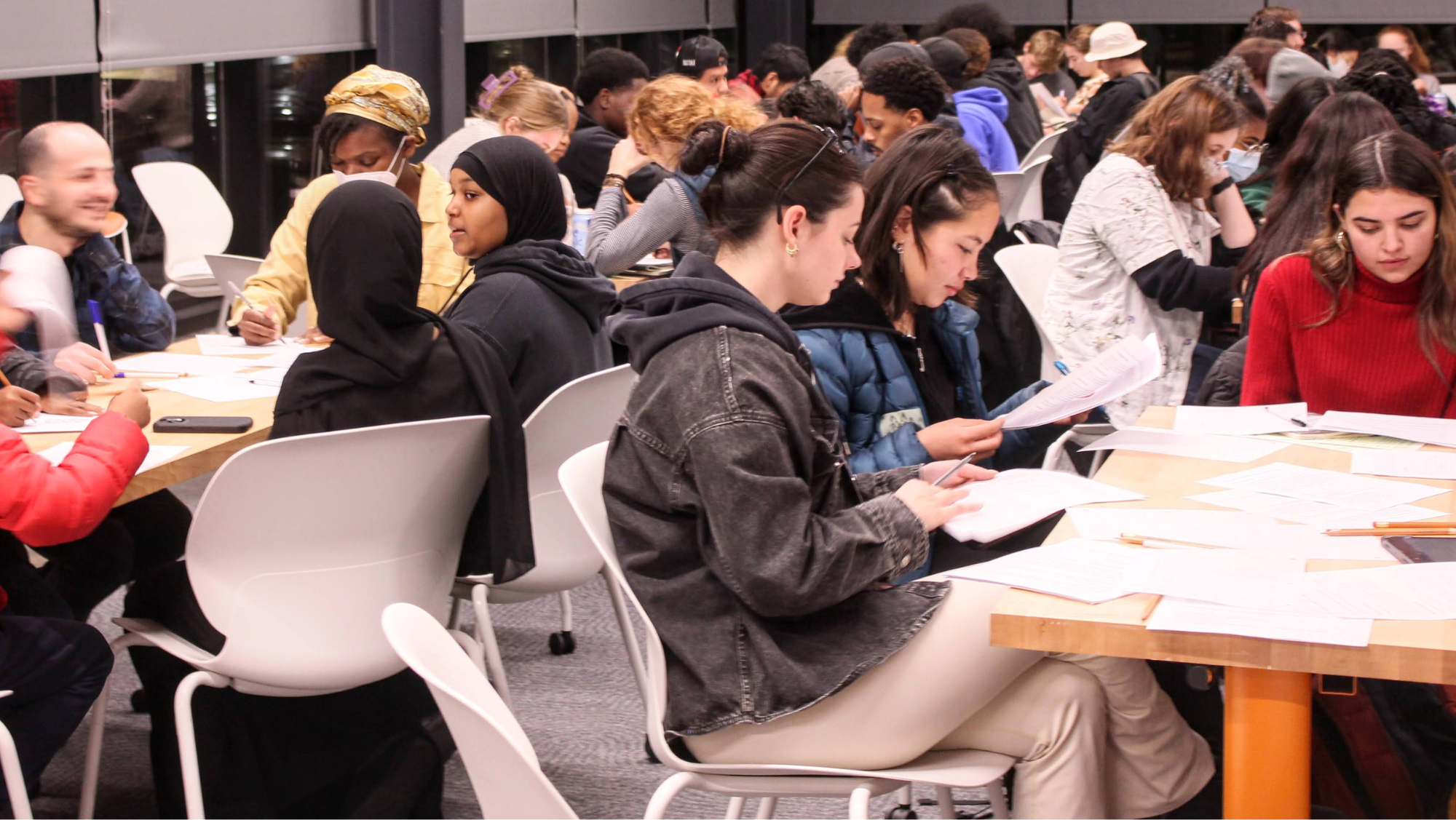
The Engaged Humanities Network's (EHN) Engaged Communities program supports and interconnects community engaged research, programming and creative work through mutually beneficial projects created between Syracuse University faculty, staff, students, and community partners. EC projects are supported by grants from the EHN, Academic Affairs Office of Strategic Initiatives, and the Lender Center for Social Justice. Project teams convene as cohorts throughout the year to share resources, collectively problem-solve, align efforts, provide mutual support, and showcase their work.
2025-2026 Engaged Communities Cohort
Black Women Art Ecosystems: Storytelling, Sustainability, & Community Voice
Project Lead: Tanisha Jackson (African American Studies and Community Folk Art Center)
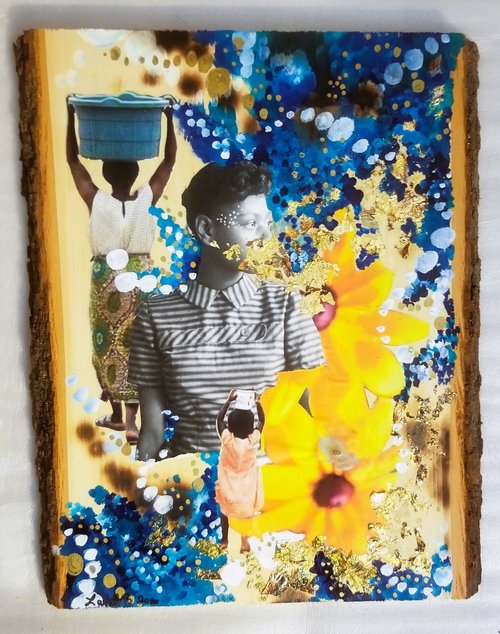
This project supports the creation of Black Arts Speak, a short film and series of community workshops highlighting Black women artists in Syracuse. In partnership with CFAC, it centers storytelling, intergenerational dialogue, and creative expression to document and celebrate Black Women Art Ecosystems as vital sites of culture and care.
Feasibility and Sustainability of the Mindfully Growing Curriculum
Project Leads: Lynn Brann (Nutrition and Food Studies) & Rachel Razza (Human Development and Family Science)
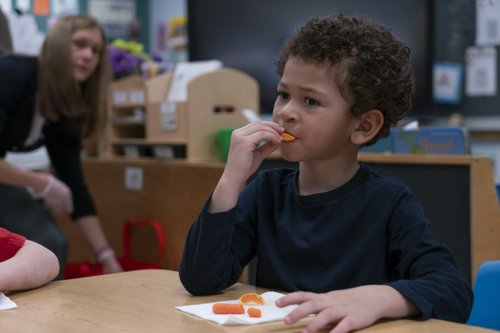
This project extends a two-year partnership with Elbridge Elementary to implement Mindfully Growing , a holistic mindful eating curriculum supporting preschool children, their parents, and their teachers. The extension of this project through Engaged Communities includes teachers in revisions of the teacher-focused content and involves them in the co-implementation of the child lessons for feasibility and sustainability.
Reading Communities: Black/Arab Relationalities
Project Leads: Carol Fadda (English & Textual Studies) & Dana Olwan (Women's & Gender Studies)
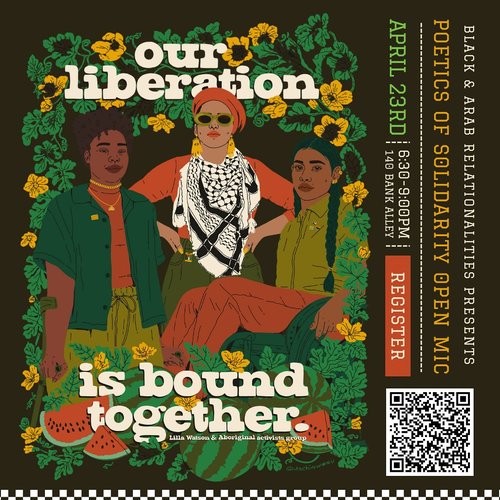
Extending the work of Black/Arab Relationalities: Confronting Racism, Narrating Solidarities, a Mellon-funded initiative that explores how communities in Syracuse, across the university and the city, negotiate and confront racial violence, colonial histories, anti-Blackness, this project develops a reading cohort to discuss texts that represent Black, Arab, and Black Arab experiences and positionalities (and the connections between them).
Co-Design: Visualizing Care and Resisting Gentrification
Project Leads: Hannibal Newsom (Architecture) & Yilei Shi (Civil & Environmental Engineering)
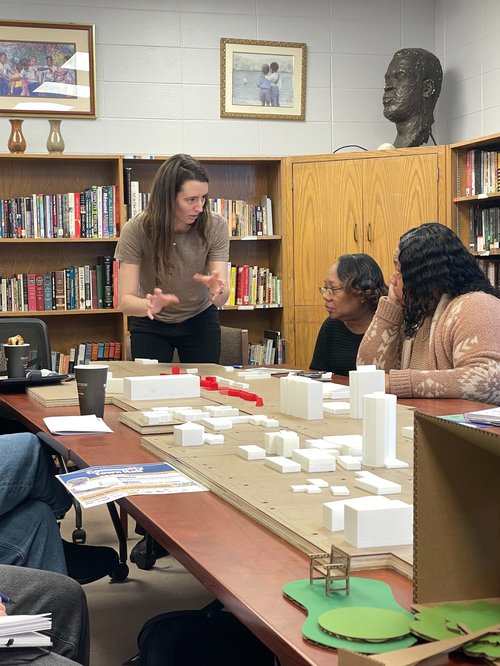
This project employs model-making/drawing workshops to engage children/youth/adults in Syracuse's downtown and Southside communities in re-envisioning the Community Grid. The project explores visions of care and resistance to displacement through proposals in support of a community trust and will culminate in a comprehensive mapping and cataloging of community-designed aspirations shared through public exhibitions, publications, and presentations to amplify the voice and vision of local community members.
Documenting the Haudenosaunee Influence on American Democracy
Project Leads: Philip Arnold (Religion), Adam DJ Brett (Religion) & Sebastian Modrow (iSchool)
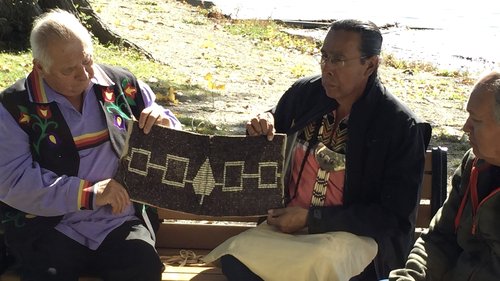
Documenting the Haudenosaunee Influence on American Democracy is a public humanities initiative creating an open-access digital archive that centers Indigenous knowledge systems and history. The project brings together traditional Haudenosaunee oral histories, archival research, and scholarly analysis to challenge dominant colonial narratives and foreground Indigenous perspectives.
Hear Together: Culturally Responsive Trauma Informed Hearing Healthcare for New Americans
Project Leads: Jamie Desjardins & Tammy Kordas (Communication and Speech Disorders)
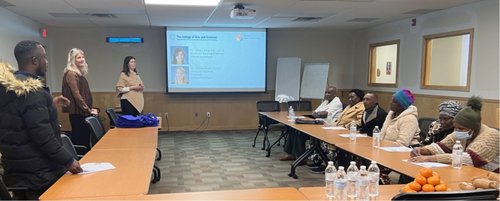
Hear Together is a community engaged initiative that will provide quality, accessible hearing healthcare for New Americans. This evidenced based healthcare model incorporates best practices for working with New Americans including, community partnership, cultural humility, trauma-informed care, and the use of interpreters to improve outcomes and reduce hearing healthcare disparities.
CFAC Performing Arts Academy
Project Leads: Kofi Antwi (Community Folk Art Center)
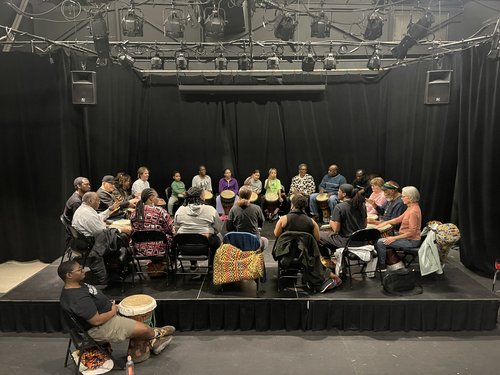
Led by Martikah Williams and Carley Robinson, Co-Managing Directors at Mount Sai Productions, CFAC’s Performing Arts Academy offers a wholistic theater curriculum training for cohorts of artists to develop new works and introduces published contemporary plays to the community. This iteration of the Academy will build relationships with the local community theaters in Syracuse to help young artists learn more about theater production, costumes, and set designs.
Syracuse West Side Farmer-Owned Cooperative Market
Project Lead: Antonisha Owens
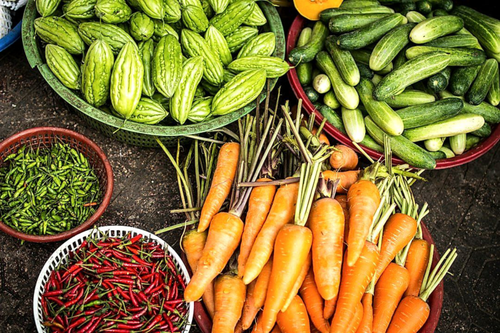
The Syracuse West Side Farmer-Owned Cooperative Market is a transformative initiative to address food access, equity, and economic disparities in underserved neighborhoods. The project seeks to establish a sustainable, community-owned market that empowers local farmers and residents through cooperative ownership, equitable market access, and local decision making while catering to an underserved and lower income population.
2024-2025 Engaged Communities Cohort
Food Sovereignty and Seed Rematriation
Project Lead: Mariaelena Huambachano (Quechua, Peru; Religion, Native American & Indigenous Studies)
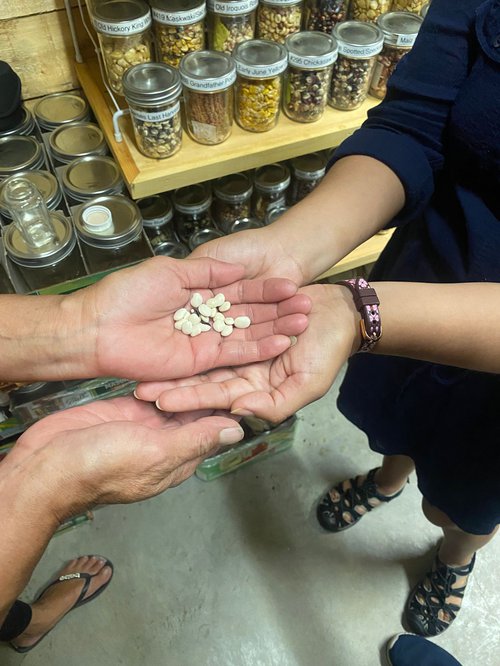
This project seeks to support social and environmental justice efforts, specifically Indigenous Food Sovereignty, which refers to access to the reclamation of Indigenous food-related knowledge led by the Onondaga women living in upstate New York. It partners with Braiding the Sacred founders, Angela Ferguson (Onondaga, Traditional Corn Grower), Onondaga elders, gardeners, students, and activists to unearth Indigenous women’s stories, wisdom, and interventions as seed keepers and food/seed sovereignty leaders through oral histories and food dialogues.
Indigenous Northern Landscapes, Visual Repatriation, and Collaborative Knowledge Exchange
Project Leads: Chie Sakakibara (Native American and Indigenous Studies & Geography) & Danika Medak-Saltzman (Women's & Gender Studies)
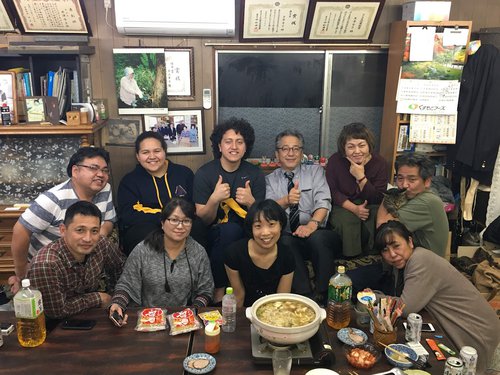
This project works with two circumpolar Indigenous communities in Japan (Ainu) and Alaska (Inupiat) to explore the importance of environmental justice and community heritage revitalization through co-production of knowledge.
Culturally Sensitive Excreta Infrastructure Systems
Project Lead: Sarah Nahar (Religion & Environmental Studies, SUNY ESF)
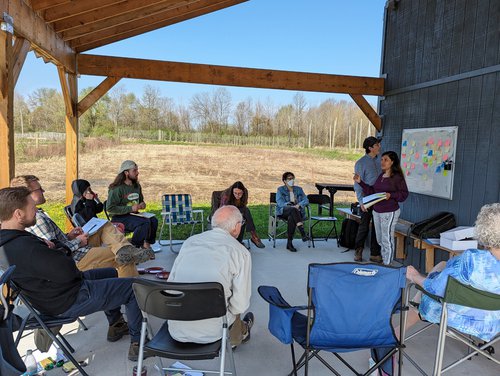
Toilets of the future must be climate resilient, culturally sensitive, and fulfill users' human rights to water and sanitation. Salt City Harvest Farm participants come from many countries and backgrounds. Learning what type of excreta infrastructure system they, individually and collectively, consider ideal will contribute to practical and academic outcomes.
Safeguarding Syracuse Communities
Project Leads: Tao Wen (Earth & Environmental Studies) & Aaron Mohammed (Engineering & Computer Science)
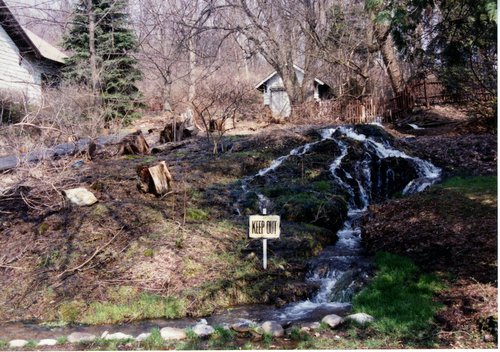
This projects partners with Syracuse communities to improve the understanding of urban resilience to flooding and water quality issues through real-time stream monitoring, predictive modeling, community engagement, and educational outreach. Project outcomes can contribute to reducing flood risk, enhancing ecosystem health, informing policy, fostering sustainable urban development, and ensuring community preparedness and resilience to climate change impacts.
Teens with a Movie Camera
Project Leads: Mišo Suchý, Lida Suchy & Evan Bode (Film & Media Arts)
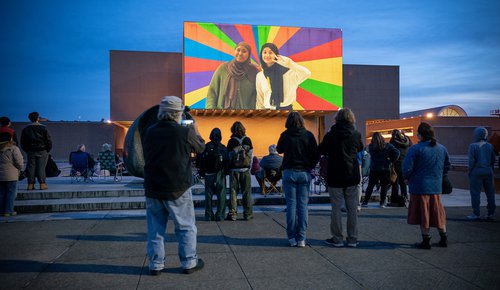
The creative project Teens with a Movie Camera is a filmmaking collaboration between City of Syracuse teens and City of Syracuse media artists. The project focuses on personal visual storytelling and culminates with the creation of original short movies and their public presentation in the community in which they are made.
Food Insecurity and Place Making
Project Lead: Seyeon Lee (School of Design)
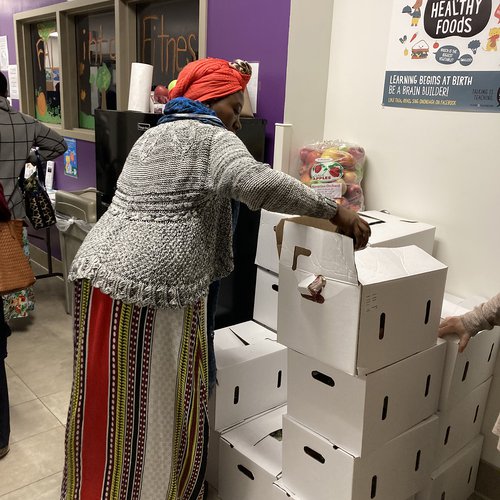
This study aims to: 1) collect data on the availability, needs, and evaluation of culturally appropriate food with a particular focus on fresh produce through the current food distribution programs, 2) explore systematic ways to promote cultural connections through food, and 3) collect home memory-histories immigrants bring with them as they are associated with food and food relations. The overarching goal of this study is to bridge the existing gap in access to culturally responsive food and its significance in placemaking within the Syracuse community, particularly for individuals establishing homes in a new country.
RESET: An Online Hub for Women with Career Break
Project Lead: Farzana Rahman (Engineering and Computer Science)
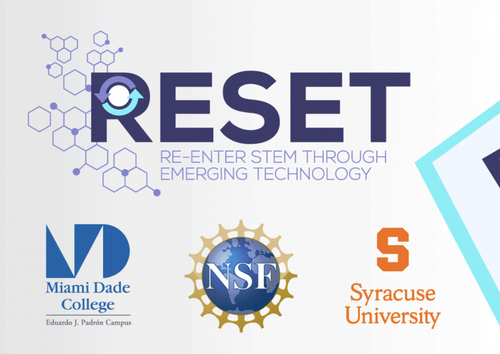
This project involves the creation of a one-stop web-based platform for women with career breaks, who are interested in re-entering the Emerging Technologies workforce pipeline. The RESET platform will host resources for returning women to learn about the best practices to upskill/reskill to re-enter the academic pipeline or workforce in EmTech.
2023-2024 Engaged Communities Cohort
The Body Project
Project Leads: Afton Kapuscinski & Shannon Sweeney (Clinical Psychology)
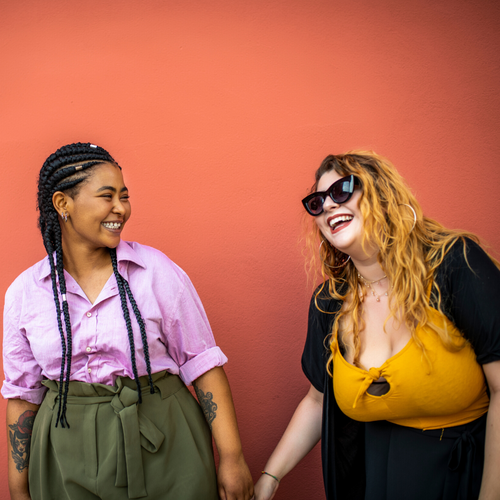
The Body Project is an empirically-supported prevention program proven to improve body image, prevent eating disorders and reduce depression among adolescent girls and young women. In this iteration of the program, members of SU's Clinical Psychology program partner with the YWCA of Onondaga County to run weekly sessions in conjunction with Girls Inc. after school and summer programming. Participants learn to speak, write and act in ways that run counter to the cultural appearance ideal for females.
Creative Art Lab: Cradle to Cradle Open Art Studio, Exhibition & Story Space
Project Lead: Rochele Royster (Creative Arts Therapy)
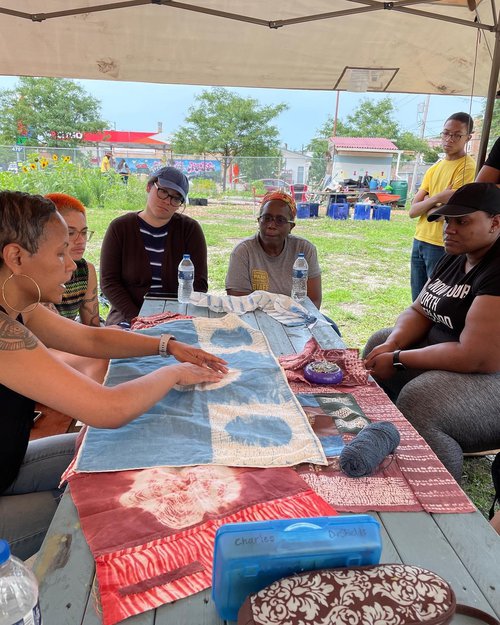
Creative Arts Lab is a pop-up open art studio that holds space for people to discover and nurture their artists’ selves, address and heal trauma and work toward creating social change within themselves and their communities. Using a black feminist framework and community care model, participants explore topics of interests through the creative arts, storytelling, installation and exhibition.
Family Pictures Syracuse
Project Leads: Caroline Charles (English), Roger Hallas (English) & Jessica Elliot (History)
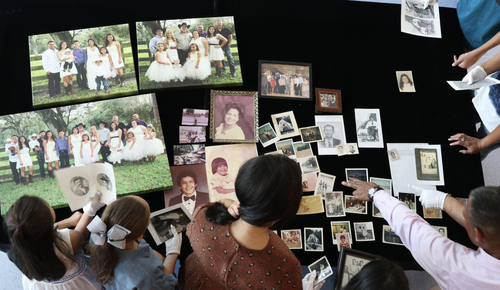
Family Pictures builds an inclusive, sustainable, and transformative community-based project for public memory, collective well-being, and social justice as local communities coming together to share stories through family photographs.
Imagined Identity / Identidad Imaginada
Project Leads: Tere Paniagua (La Casita) & Myrna García-Calderón (Languages, Literatures, and Linguistics)
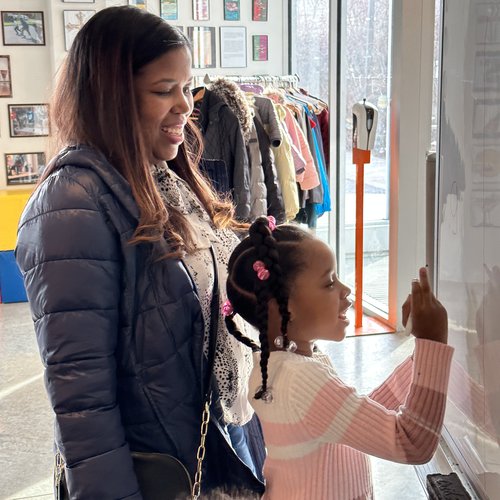
La Casita’s Mom's & Women’s Program engages with scholars and guest artists whose work inspires workshop activities reflecting on identity and gender, discussing and documenting their thoughts in writing and artistic expressions. The project will culminate with an exhibition of the works and reading by authors in the program.
Haudenosaunee Elders Series
Project Leads: Heather Law Pezzarossi (Anthropology), Aaron Luedtke (History), Scott Catucci (Outdoor Recreation), Patty Roylance (English), Diane Schenandoah, (Counseling Center) James O'Connor(Sound Beat)
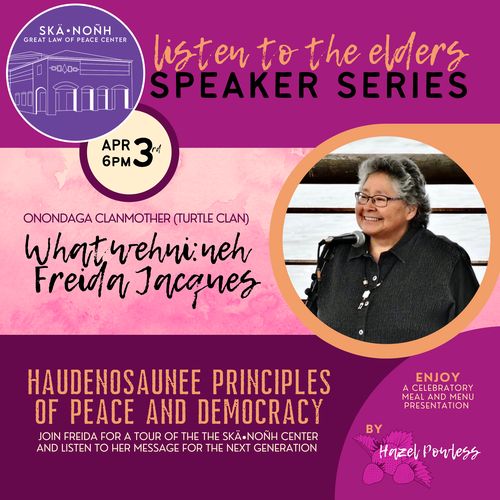
This project is part of an initiative to build stronger relationships between Syracuse University and Onondaga Nation. It includes a speaker series at the Skä•noñh Center that empowers Onondaga knowledge keepers to teach their own lessons to the Syracuse University community.
Onondaga Language Project
Project Leads: Keely Calf Robe (English) & Patty Roylance (English)
Onondaga Language Project is a program to help Onondaga individuals and families strengthen their cultural and traditional ties. This program will create Onondaga Language learning packets and tools such as flash cards for people to begin learning on their own. This program will also archive recordings of Elders speaking Onondaga to preserve them for future generations. Lastly, the program seeks to have the book Concerning the League reprinted for the Onondaga people.
Community Healing Series
Project Leads: Lenny Grant (Writing Studies, Rhetoric & Composition), Sue Lyons (Coordinated Care Services), Sandra Rivers (Authentic Trainings)
The Onondaga Community Trauma Task Force’s “Community Healing Series” will address the collective traumas communities in the Onondaga Nation, Syracuse, and Onondaga County endured during winter 2022-2023. Events include a workshop on indigenous trauma healing, an expressive writing workshops for school social workers, and a community summit on trauma education.
Fermenting Stories: Exploring Ancestry, Embodiment, and Place
Project Lead: Mike Gill (Disability Studies, Cultural Foundations of Education)
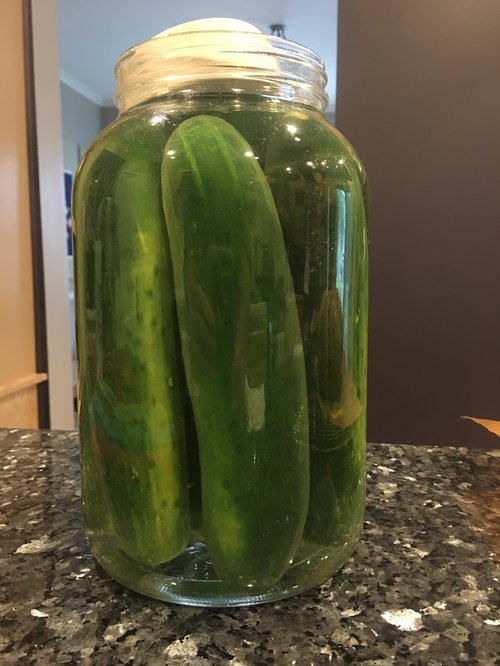
This project will conduct a series fermentation classes at Brady Farm open to the public. It will also build a public web-based archive documenting these experiences and histories of fermentation and allowing for sharing of memories and stories attached to family, place, and experiences of fermentation. This model links community supported agriculture with the expertise and knowledge of community teachers to expand efforts of food justice and sustainability embedded in the work of Brady Farm.
Syracuse University Research in Physics (SURPh)
Project Leads: Jenny Ross, Mirna Mihovilovic Skanata, Alison Patteson, Denver Whittington, Eric Coughlin (Physics)
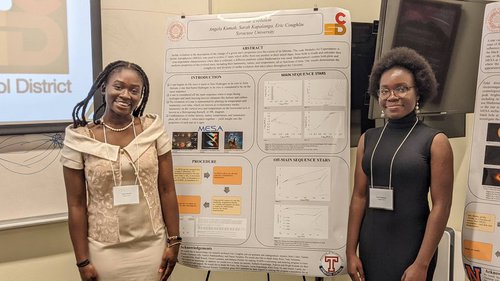
SURPh is a 6-week, paid internship for students from the Syracuse City School District high schools designed to create a pipeline of diverse science and engineering students in the Syracuse City area. In partnership with SCSD teachers, Physics faculty lead student participants in bootcamps to introduce basic experimental skills they need in their research. After working in labs on cutting-edge physics research, participants present their science to families, SCSD leaders, and Syracuse University leaders.
Unearthing Black Girl Literacies ‘In Place’
Project Lead: Courtney Mauldin (Teaching & Leadership)
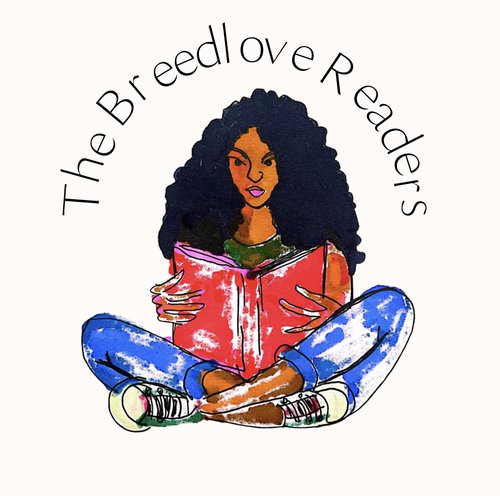
Building on the place-based work of The Breedlove Readers book club in Central New York, this project seeks to enunciate the multimodal literacies of middle and high school aged Black girls in the mid-south region, specifically in Shelby County of Memphis, Tennessee. This initiative will have an intentional reach across communities and support Black girls in accessing literature that positively reflects their lives as well as creates alternative spaces whether hybrid or in place, for Black girls to gather in community and explore reading, writing, and creating towards social transformation in their communities.
Data Warriors
Project Leads: Nicole Fonger (Math & Math Education), Jonnell Robinson (Community Geography), Ken Keech (Nottingham H.S.), Stephen Caviness (Math Education), Karley Voyias (Math Education), Waleed Raja (Math Education), Lauren Ashby (Sociology)
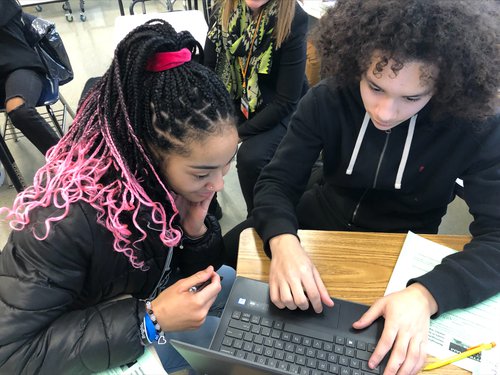
This project brings together an interdisciplinary group of scholars in the fields of mathematics education and community geography to design and host a summer seminar series focused on community-engaged, youth-centered research. The summer seminar will focus on graduate-student peer mentoring and the theme of “Youth-Centered Environmental Justice Through Math and Mapping," and will culminate in a workshop for high school students interested in pursuing environmental justice through math and geography lenses.
2022-2023 Engaged Communities Cohort
Deaf New Americans - Developing Language and Sharing Stories
Project Leads: Corrine Occhino (Languages, Literatures, and Linguistics & School of Education); Monu Chhetri and Tamla Htoo (co-founders of Deaf New Americans Advocacy Inc.)
Developing Language and Stories is a collaboration between SU’s Multimodal Language Lab and the Syracuse-based nonprofit Deaf New Americans Advocacy Inc. The project aims to better understand and support the literacies of deaf immigrants through the creation of English language and ASL instructional materials. The project also works through video storytelling to document the challenges and lived experiences of deaf immigrants across contexts of American society.
Natural Sciences Explorer Program (NSEP)
Project Leads: Prof. Katie Becklin (Biology), Prof. Christopher Junium (Earth and Environmental Science), Eliza Hurst (Earth and Environmental Science), Claire Rubbelke (Earth and Environmental Science), and Julia Zeh (Biology)
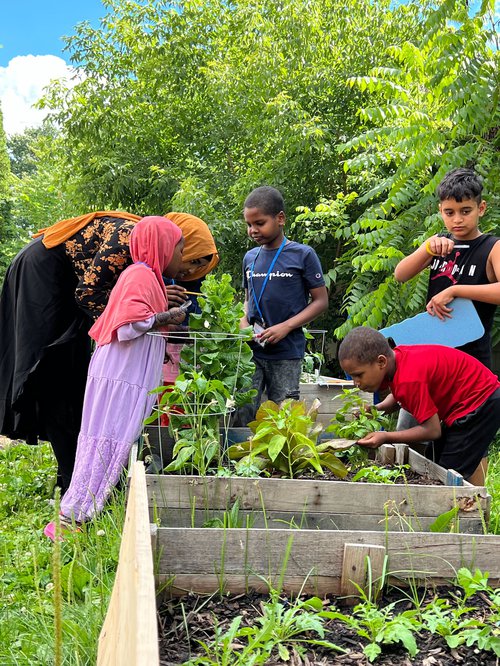
The NSEP collaborates with the North Side Learning Center (NSLC), a family educational center for resettled refugees and recent immigrants in Syracuse, to help elementary school students explore biology and earth science through inquiry-based learning and culturally responsive teaching. The group aims to inspire Syracuse youth to scientific curiosity through tangible projects and activities that explore the natural and urban landscapes around Syracuse.
Peter Jones Exhibition and Programming
Project Leads: Prof. Sascha Scott (Art History) and Prof. Scott Stevens (Native American and Indigenous Studies & English)
Student Curatorial Team: Eiza Capton (Member of the Cayuga Nation; B.F.A in Illustration), Charlotte Dupree (Citizen of the Akwesasne Mohawk Nation; B.A. in Art History), Anthony V. Ornelaz (M.F.A in Creative Writing), and Jaden N. Dagenais (M.A. in Art History; M.S. in Library and Information Studies)
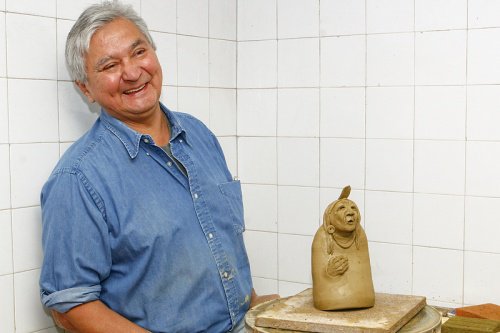
In collaboration with the SU Art Museum, this project centers on the creation of an exhibition of the work of internationally acclaimed ceramicist Peter Jones (Beaver Clan of the Onondaga Nation). The aim of this project is to increase student and community engagement through student-led research and new courses. Profs. Scott and Stevens are mentoring a curatorial team of students through the process of designing, researching, and writing about the exhibition. Community engagement will happen through the exhibition itself and related public programming, as well as through student discussions with the artist and visits to the artist’s studio and regional museums. Student and community engagement will also be accomplished through a new course co-taught by Professor Scott and Professor Stevens that emphasizes Indigenous culture and ethical museum practices. This project will help the SU community become more aware and informed about the Onondaga Nation, Haudenosaunee Confederacy, and the continuity of Indigenous peoples and their cultures in the face of tremendous challenges and cultural changes.
Philosophy Lab
Project Leads: Prof. Michael Rieppel (Philosophy), Stacy Kohls (Philosophy), Joshua Tignor (Philosophy)
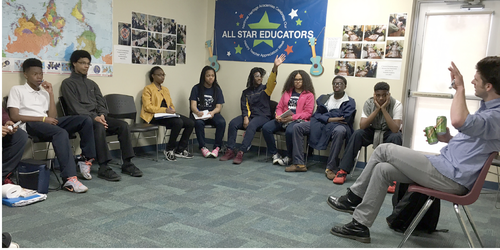
Philosophy Lab creates discussion-based programming for students across stages of education centered on developing reasoning and critical thinking skills via philosophy. The program's primary goal is to help students gain the confidence to develop their own principled answer to some of the deep existential questions they may already be wondering about.
Take Me to the Palace of Love
Project Leads: Prof. Romita Ray (Art History ) and Vanja Malloy (Director and Chief Curator of the SU Art Museum) in collaboration with Ankush Arora (M.A. candidate, Art History)
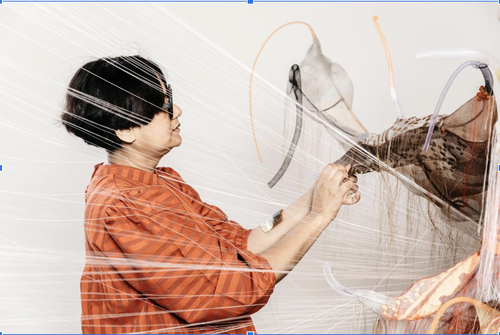
Take Me to the Palace of Love is an exhibit by widely acclaimed artist Rina Banerjee set to open at the SU Art Museum in January 2023. Banerjee herself will be in residence at SU as the 2022-23 Jeannette K. Watson Distinguished Visiting Professor in the Humanities. Take Me to the Palace of Love will be extended into the city of Syracuse through a public art installation that will be created by Banerjee and members of the Syracuse community in collaboration with the university community. The project will also include the creation of a virtual catalog evolved from diverse community-based conversations about love, home, identity, belonging, and diaspora, the main themes of the exhibition, and the main impetus behind the art installation.
Writing Beyond Release: Mend and Rebuilding Futures
Project Lead: Prof. Patrick W. Berry (Writing Studies, Rhetoric, and Composition)
In collaboration with the Center for Community Alternatives in Syracuse, Writing Beyond Release will initiate the launch of Mend, a national publication to discuss the crisis of mass incarceration from the personal narratives of people who have been directly impacted. In addition to reflecting on personal journeys, contributors will also have the opportunity for personal growth and intellectual engagement through the publication. Mend will work to educate the nation about the shortcomings of the current incarceration system and help incarcerated people and their families develop new facets of their identities.
2021-2022 Engaged Communities Cohort
The Antiracist Algebra Coalition
Project lead: Nicole Fonger, Assistant Professor of Mathematics and Math Education
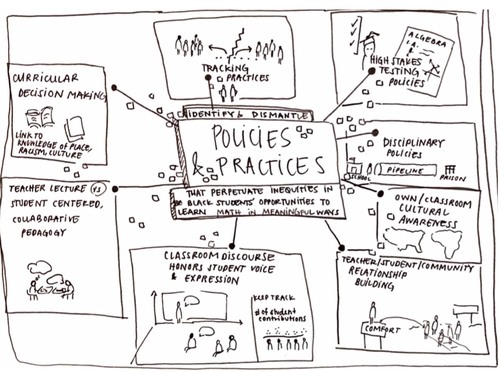
The Antiracist Algebra Coalition examines how algebra education in the Syracuse City School District (SCSD) affects Black students’ success. Composed of SU faculty and students and SCSD students, teachers, parents, and administrators, the Antiracist Algebra Coalition works to identify and dismantle practices and policies that perpetuate inequitable opportunities and success for Black students to learn algebra in meaningful ways.
The group aims to develop relationships and build community, pursue scholarship, pedagogy, and creative work that fosters social justice, and apply scholarly knowledge to work toward change in the Syracuse community.
Doctrine of Discovery
Project leads: Philip Arnold, Associate Professor and Chair, Department of Religion; Adam DJ Brett, PhD Candidate, Religion; Jordan Brady Loewen, PhD Candidate, Religion
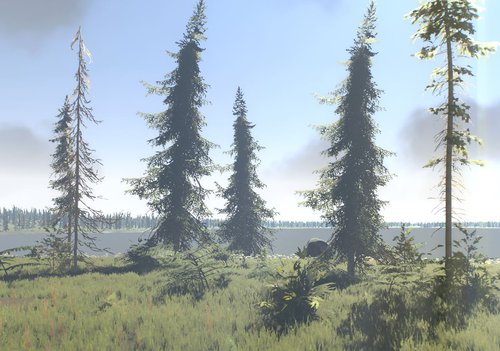
The Indigenous Values Initiative (IVI), American Indian Law Alliance (AILA), and Skä•noñh - Great Law of Peace Center are collaborating with the Syracuse University Department of Religion and SU Libraries Special Collections Research Center to design materials to educate the public about the history and consequences of the Doctrine of Discovery (DoCD). The DoCD was first formulated as a series of Papal Bulls giving Christian monarchs permission to subdue non-Christian people, was codified into law by the U.S. Supreme Court in 1832, and continues to shape the legal system. To this day, the DoCD is invoked by multinational corporations to justify seizing the land and resources of Indigenous Peoples around the world.
In addition to producing historically situated and contextualized translations of the Papal Bulls which comprise the Doctrine of Discovery, this project distributes a podcast with notes, resources, and teaching tips on its website, doctrineofdiscovery.org, and through the Indigenous Value Initiative’s YouTube channel. The project also includes the Virtual Onondaga Project (pictured above), an interactive digital-virtual version of Onondaga Lake that educates by sharing stories from the Haudenosaunee, for whom the lake is considered sacred.
Echoes
Project leads: Teresita Paniagua, Executive Director, Cultural Engagement for the Hispanic Community & La Casita Cultural Center & Zackery Pearson, Master of Social Work student at Syracuse University
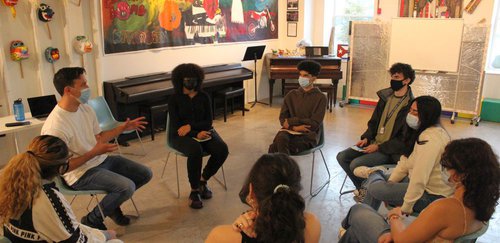
Designed and facilitated by students of color at Syracuse University and SUNY Upstate, and in partnership with La Casita Cultural Center, the Echoes program blends art therapy and stress reduction techniques to offer workshops that feature mindfulness practices centering on Afrocentric, culturally anchored expressive art models and activities.
The aim of the program is to provide children (ages 6-9; 10-12 and 13-17) with coping tools to manage the impact of isolation, stress, and trauma experienced during COVID19-related shutdowns and the violent wave of brutality seizing the nation. Young participants will participate in mindful meditation exercises in each session, as well as discussions and art practices inspired by the rich forms and traditions rooted in African cultures, which contribute in a positive way to the present-day experiences of our Afro Latinx and African American youth.
Spanish in Action
Project leads: M. Emma Ticio Quesada, Associate Professor and Chair, Department of Languages, Literatures, and Linguistics (LLL); and Elizabeth Juarez-Cummings, Assistant Teaching Professor and Spanish Language Coordinator, Languages, Literatures, and Linguistics
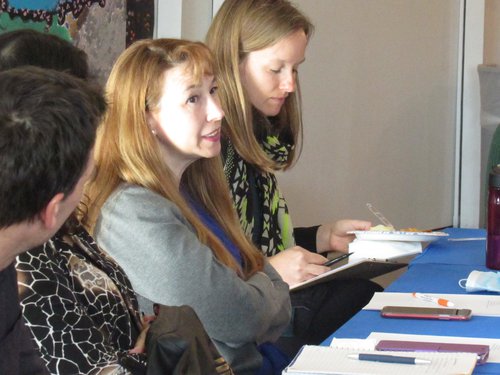
The Spanish in Action project promotes the value of all varieties of Spanish by raising awareness about the social, academic, professional, and cognitive benefits of bilingualism for native and non-native Spanish-speakers alike. Spanish in Action partners with a variety of different community organizations to offer peer-mentoring, professional development workshops, and training programs that emphasize Spanish as a means of building community, validating different cultures, and sharing resources and opportunities for educational and professional advancement. Participants learn to use Spanish confidently in workplace settings, celebrating their cultural and linguistic heritage while simultaneously expanding on the variety of Spanish registers available to them.
Write Out
Project leads: Bruce Smith, Professor English, Creative Writing; Jacob Gedetsis, Writing Resource Center Coordinator, SUNY ESF.
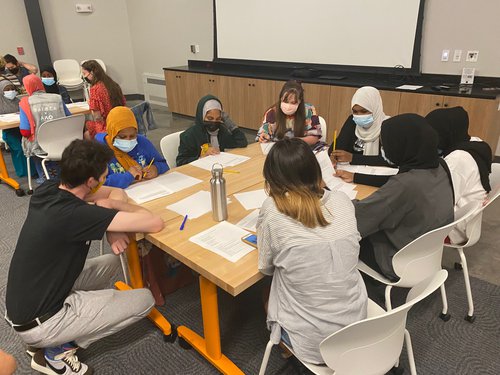
Write Out is a community writing collective that partners with local organizations to offer youth-oriented afterschool programming designed to get students excited about writing and storytelling.
Since it was first launched in 2020, Write Out has partnered with teachers, artists, and community leaders from the North Side Learning Center, YWCA’s Girls Inc., the Center for Community Alternatives, La Casita Cultural Center, and Syracuse University to co-design writing workshops for children and teens in the Syracuse Area.
Write Out and its community partners are committed to challenging assimilationist discourse that focuses on “overcoming” cultural and linguistic differences. They seek to provide youth a space to share their own stories, on their own terms, and encourage students to write across languages and modes of meaning-making.
